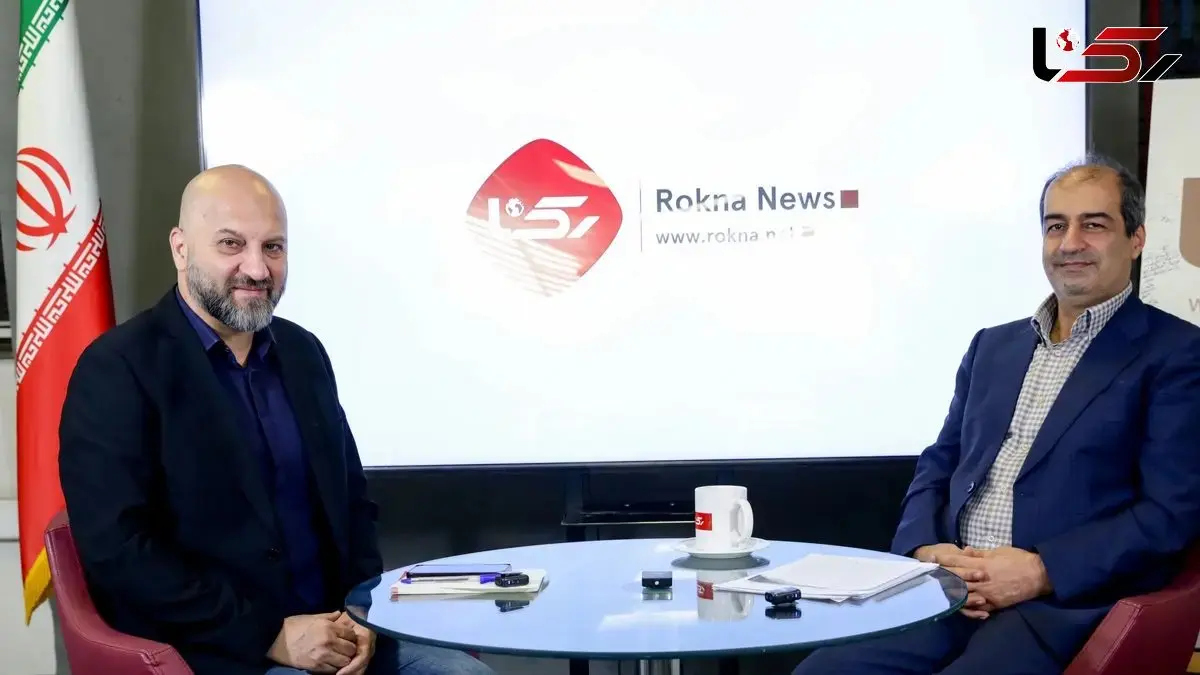“Borzogzadeh Discusses Key Issues in Exclusive Interview on Rok Program at Rokna”
“Water Spokesperson: Combat Conflict of Interest, No Water Mafia in Iran” + Video
Rokna Social Desk: The issue of conflict of interest is one of the most fundamental challenges not only in the water sector but across many administrative and decision-making structures in Iran. When an organization simultaneously issues permits, sells services, and supervises the implementation of those same services, concerns naturally arise regarding transparency, fairness, and the efficiency of resource management. This topic formed the basis of a candid and frank interview conducted by Afshin Amirshahi, host of the “Rok” program on Rokna, with Dr. Isa Bozorgzadeh, spokesperson for the country’s water sector. In this conversation, questions were asked directly, and responses were provided without pretense, emphasizing the need for structural reforms.

Question: In the Ministry of Energy, we face a structural conflict of interest: an entity that is both a permit issuer, service provider, and supervisor. Naturally, in such circumstances, “water resource protection” may not be a priority, as financial incentives or political pressures can replace scientific management. What is your view?
Dr. Isa Bozorgzadeh, Spokesperson for Iran’s Water Sector: I fully agree with you. The Ministry of Energy has made extensive efforts to legally address conflict of interest in the Seventh Development Plan. But it is important to note that conflicts of interest are not limited to the Ministry of Energy. I will not name other areas, but conflicts of interest exist from the westernmost to the easternmost countries, from the poorest to the wealthiest societies. No society considers conflicts of interest other than a form of corruption.
Conflict of interest is the enemy of humanity, ethics, and patriotism. Anyone who cares about Iran, or believes in morality and humanity, must combat conflict of interest—with full force, even relentlessly.
Conflict of interest fosters favoritism, leads to misguided projects, creates social and environmental instability, and ultimately results in poverty.
For this reason, the Ministry of Energy included a provision in the Seventh Development Plan, according to which I am obliged to identify instances of conflict of interest in the water sector and take action to resolve them. God willing, with the support of the media, we will propose a plan that leverages global experience while aligning with Iran’s culture and conditions. Combining international expertise with local adaptation can help us fundamentally combat conflict of interest.
Question: Some believe that a “water mafia” exists in Iran. What is your view?
Dr. Isa Bozorgzadeh: No; there is no water mafia in Iran.
A mafia—as I understand it—is an organized, corrupt group that comes together to perpetuate corruption and even has formal statutes and mechanisms to expand it. Such a phenomenon does not exist in Iran’s water sector.
Question: Critics who refer to a “water mafia” often point to contractors, consultants, and suppliers. They argue that this term, though unofficial, is applied in academic and media circles to certain individuals or entities involved in projects like dam construction and water transfer. According to some experts, many of Iran’s water problems stem from mismanagement, flawed policymaking, and rent-seeking by these actors. These groups, through their influence, divert surface and groundwater to favor specific industries or agricultural sectors, exacerbating drought, water stress, and dissatisfaction among local farmers. What is your view?
Dr. Isa Bozorgzadeh: The definition you mentioned does not describe a mafia. Review the text carefully: who holds the main share of water consumption in the country? Eighty to eighty-six percent is in the agricultural sector. Agriculture is mostly in the hands of the people—90 percent—and only 3 to 4 percent is industry. Now, imagine if “we”—meaning a hypothetical mafia—wanted to take this water from the farmers; where would we take it? It does not make sense.
If we frame the question more precisely—such as: “Are there individuals who, for their own benefit, define a project in a particular part of the country under pressure or misguided objectives?”—the answer is yes. Such cases exist. As in media, politics, and many other fields, individuals or groups may act contrary to ethical principles. This is not unique to the water sector; it occurs in all sectors.
However, calling contractors, consultants, or suppliers a “mafia” is completely incorrect. Who are these contractors? They are the children of this country; engineers who studied in Iranian universities, established companies under the technical and executive regulations, and provide technical and engineering services. Why label them as a mafia? They operate within the law.
So, if the question is: “Are there stakeholders who interfere in certain decisions?”—yes, there are, and I am aware of some examples myself. But labeling these entities as a “mafia” is neither accurate nor fair.
Afshin Amirshahi: I leave the judgment to the audience.
Send Comments